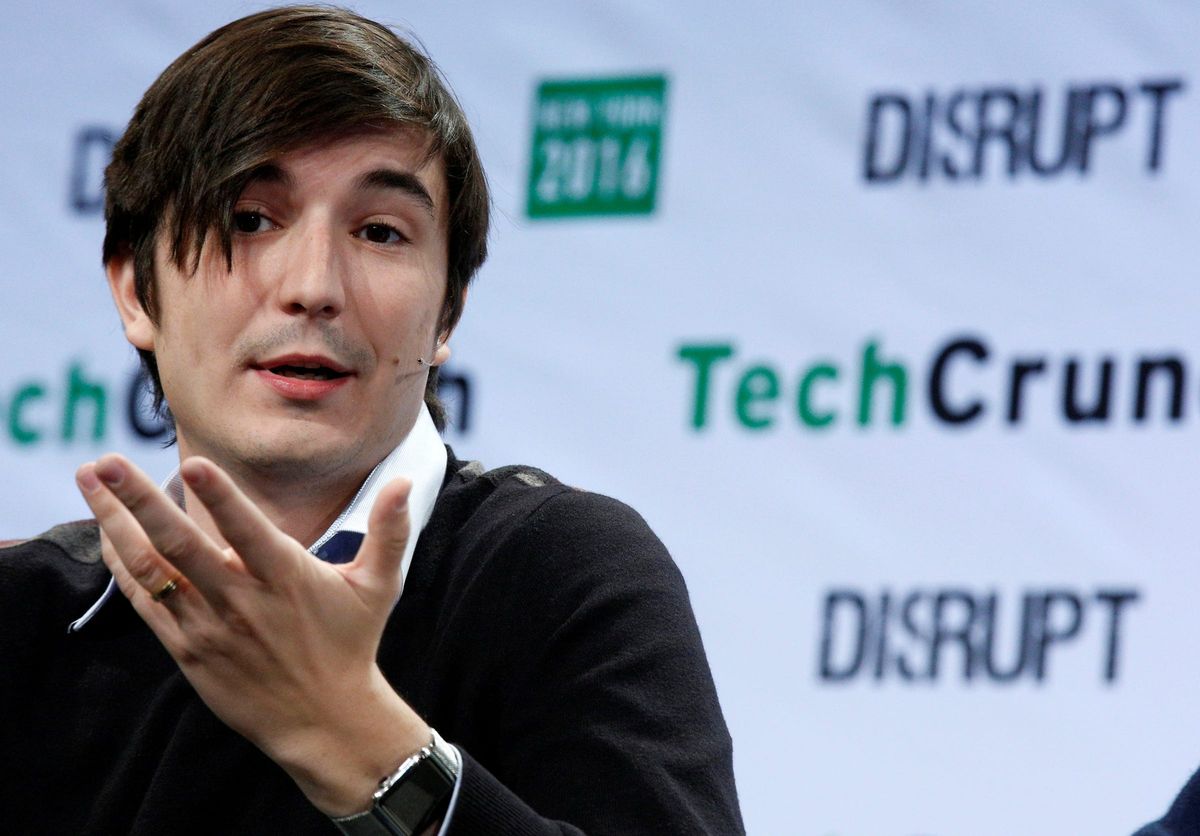Millions of millennials have taught themselves online stock trading during the pandemic

A few minutes every morning is all you need.
Stay up to date on the world's Headlines and Human Stories. It's fun, it's factual, it's fluff-free.
Robinhood’s valuation, membership and fundraising have soared throughout 2020, even as the economy has faced more downs than ups.
For many young people, 2020 has been a largely monotonous year, with COVID-19 shutting down the economy, social activities and even school.
For others, however, the pandemic has proved to be an opportunity to explore new interests and hobbies. For many young Americans and millennials, this has meant taking some tentative steps into the world of online stock trading.
Through the popular brokerage app Robinhood, millions of young people have begun purchasing options and trading stocks and cryptocurrencies for the first time, all made possible thanks to an app designed to appeal to a younger audience with its streamlined layout and behavioral nudges.
Robinhood Markets, Inc. has welcomed this growing interest. Robinhood’s valuation, membership and fundraising have soared throughout 2020, even as the economy has faced more downs than ups.
But it’s not all smooth sailing for this new generation of stock traders. Some have suggested that Robinhood’s app lures first time traders into making poor decisions without adequately preparing them or teaching them about the world of stock trading, leading to disastrous consequences.
Safety concerns aside, the Robinhood app has also had a rocky 2020, with security breaches and service outages a frequent spectacle.
Regardless, for a young generation of first-time stock traders, Robinhood’s millennial-focused platform and its promise to “democratize” online trading have been welcomed.
Robinhood’s 2020
Founded in 2013 by Stanford University graduates Baiju Bhatt and Vlad Tenev, “Robinhood” – named after the legendary Medieval English outlaw who stole from the rich to give to the poor – targeted “small dollar” and novice investors by offering zero commission on trades.
Robinhood believes that its mission is to “democratize finance for all,” and that Robinhood can provide for this aim by making investing “friendly, approachable, and understandable for newcomers and experts alike.”
Around half of Robinhood users are first-time investors and its user base has a median age of around 30.
Robinhood’s long-term growth has also been positive. With some two million users in 2017, Robinhood surpassed 10 million users in December 2019 and has added an additional three million users in the first four months of 2020 alone, bringing that user count to 13 million.
The volume of trading on Robinhood has also exploded. In January 2020, the retail equity trading volume on Robinhood was some 3.4 billion shares. By June, this figure had risen dramatically to 19 billion shares.
This success has helped to attract big-money investors. The company has raised over US$1 billion in funding throughout 2020, including funding from venture capital giant Sequoia Capital. Robinhood’s valuation rose to just under US$12 billion in 2020 as a result.
Robinhood’s appeal
Robinhood’s platform has proved especially attractive to a young generation of first-time traders.
One young trader, Will Sartain, a student at Ohio State University, recounted to Bloomberg how, like betting on sports, trading on Robinhood for the first time gave him a “nice rush.”
The appeal to young first-time traders has certainly been widespread. The brokerage app has passed through influencer spheres on social media apps such as TikTok, where thousands of videos related to the app have been produced.
One TikTok college-age producer, Errol Coleman, produces videos that he then shares with his 200,000 followers offering explainers and tips on investing.
Many younger traders are drawn to the platform because of its sleek design, simple user interface and the company’s pledge to charge zero commission on trades. Such a policy is now an industry standard but was unusual at the time of Robinhood’s founding.
However, critics have warned that ease of use and sleek designs do little to prepare first-time users for the reality of trading.
Speaking to CNBC, financial planner Michael C. Whitman warned that presenting trading as simple and “easy” is “super dangerous, because trading securities can be complex.”
“You should really weigh pros and cons before blindly purchasing stocks,” he added.
Critics have also argued that in appealing to a younger audience, Robinhood “gamifies” stock trading. Through incessant push notifications and attractive visuals like any other mobile game, Robinhood “can encourage investors to act with only their short-term interests in mind,” financial planner Erika Safran told CNBC.
The dangers of luring in first-time investors without adequately preparing them has been all too apparent on Robinhood. One young trader committed suicide after seeing his balance drop to negative US$730,000.
Research has also shown that day trading, the kind of trading that takes place on Robinhood, more often than not loses money. One 2004 study of day trading in Taiwan found that at least 80% of traders lost money and only a tiny percentage, some 0.03%, consistently earned large profits.
Consequently, Noah Smith, assistant professor of finance at Stony Brook University writes in Bloomberg, “day trading should be treated like an expensive video game, not like a way of getting rich quick.”
Outside of concerns for its young user base, Robinhood’s core app has also experienced problems throughout 2020. During the stock trading surge in March, Robinhood’s app lost service for sustained periods of time.
The sustained outages, in which users could not access accounts or trade, has also meant the company is facing a number of class-action lawsuits as well as inquiries from the United States Securities and Exchange Commission (SEC).
Robinhood employees who spoke to The New York Times on the condition of anonymity reported that “the outage was rooted in issues with the company’s phone app and servers” and that the startup company had “underinvested in technology and moved too quickly rather than carefully.”
For now, Robinhood has cut back on moving quickly and has put plans to expand outside the US on hold.
Robinhood’s co-founder Vlad Tenev has argued that in today’s society it is a greater risk for young people to not invest in stocks, as not participating in markets “ultimately contributed to the sort of the massive inequalities that we’re seeing in society.”
But the argument remains that many young people, pulled in by Robinhood’s “zero fees” and easy to use interface, don’t know what they’re getting themselves into and, in the process, setting themselves up for disaster.
Have a tip or story? Get in touch with our reporters at tips@themilsource.com




Comments ()